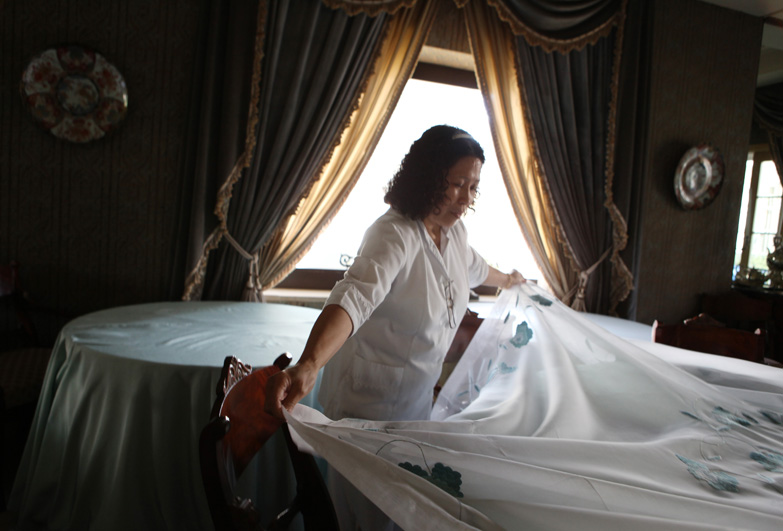Lebanon – protecting migrant women
Migrant domestic workers
From Nepal to Lebanon
There are estimated 200,000 migrant domestic workers in Lebanon. Until 2012, Lebanon was the top country of destination for female migrant workers from Nepal. The abuse and exploitation many of them suffer is widespread.
It will be difficult if you escape. If they catch you then they don’t treat you very well. You will be taken to the police and they will beat you. They will take away your things including your passport. My sisters, you should not do that.
Savitra from Nepal, former migrant domestic worker in Lebanon
The plight of Nepalese migrant domestic workers is rooted in a continuum of vulnerabilities starting from their recruitment in their rural villages and lasting until they start work in a home in Lebanon.
Anti-Slavery International is working with local partners KAFA in Lebanon and GEFONT in Nepal to address the problem of exploitation of Nepali migrant domestic workers in Lebanon.
In Lebanon, together with our partner KAFA we work with Nepalese migrant domestic workers to self-organise. We founded a group of Nepalese migrant women called NARI to support each other and advocate for their rights. At its peak consisting of 81 members, NARI grew into an independent and increasingly influential group campaigning for migrant domestic workers’ rights.
KAFA also runs a helpline for female domestic workers who are victims of exploitation and abuse. The helpline is available 24 hours a day and is supported by two social workers and a lawyer, who either follow up directly or refer the case to relevant authorities. The helpline usually receives between 25-35 calls per month.
As part of this project we also work in Nepal. We reach out to potential migrant domestic workers in the rural areas of eastern Nepal to raise awareness of the risks associated with migrating, train them how to mitigate the risks, what to do in emergencies and how to claim their rights.
Alongside working directly with migrant communities, the project also advocates with governments in both Nepal and Lebanon.
In Lebanon we advocate for the reform of the kafala system and for the right of abused migrant domestic workers to leave their employer and be granted a grace period to find a new employer.
An important part of our advocacy concentrates on including domestic workers in the labour laws, allowing them basic protections enjoyed by all the other workers, including the right to organise in a union.
This has always been problematic as although domestic workers organised themselves into a union affiliated to the National Federation of Workers’ and Employees’ Unions in Lebanon (FENASOL), the political conditions for the workers remain very challenging.
In Nepal, we asked the Government to lift the deployment of the ban currently in place on migration for domestic work in Lebanon and establish safe migration mechanisms. We are also asking both countries to ratify the International Labour Organisation (ILO) Domestic Work Convention 189.
Project partners:
- Lebanon: Kafa (Enough Violence and Exploitation)
- Nepal: General Federation of Nepalese Trade Unions (GEFONT)
From Bangladesh to Lebanon
Building on our current project with Nepalese workers, we extended our work to women migrating from Bangladesh.
We have started a process to identify the Bangladeshi community of migrant domestic workers and support them in being able to organise themselves.
Our partner in Bangladesh the International Domestic Workers Federation (IDWF) has started raising awareness about the risks of migrating for domestic work amongst potential migrant women, as well as advocating for their rights with the government.
